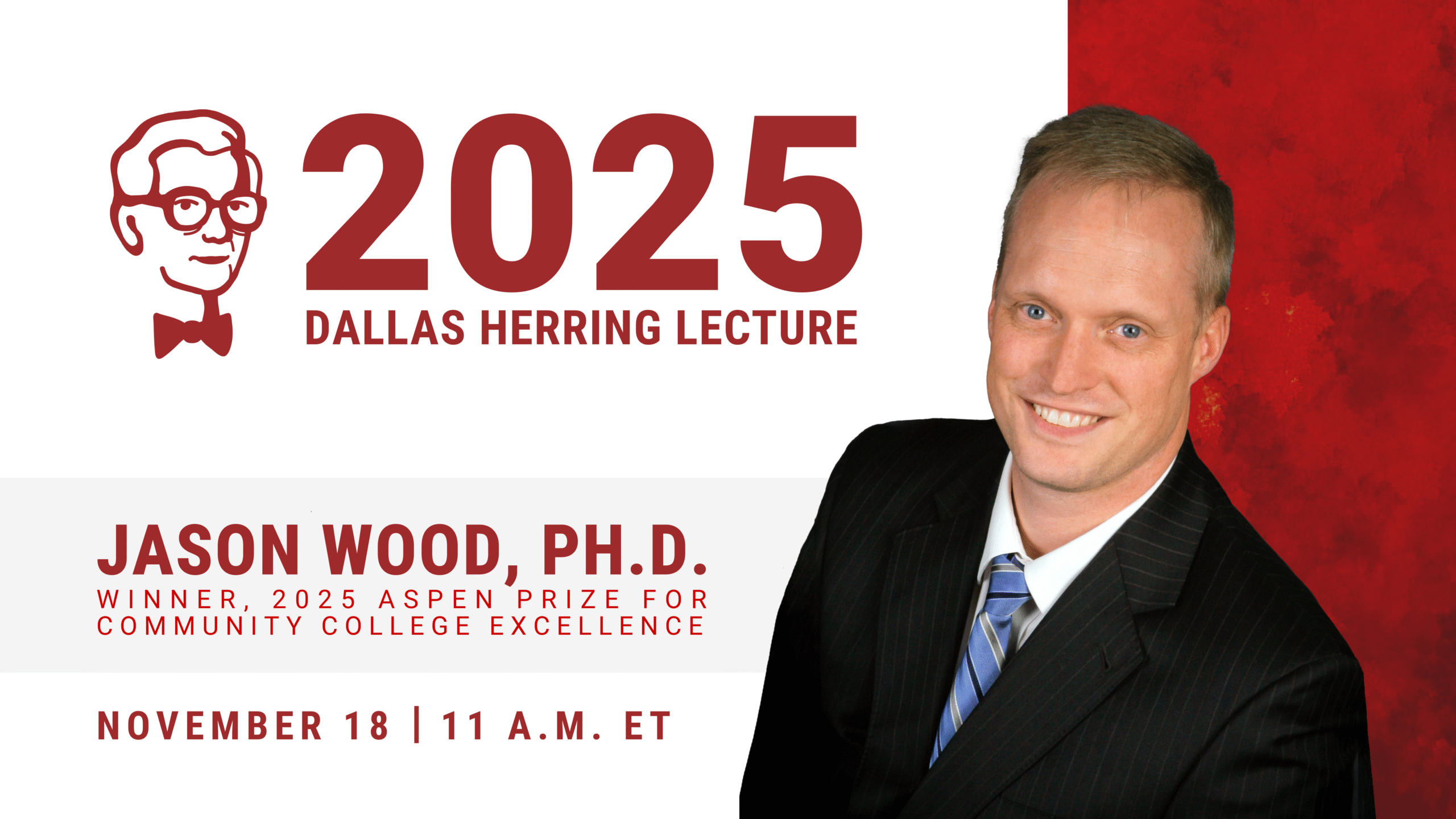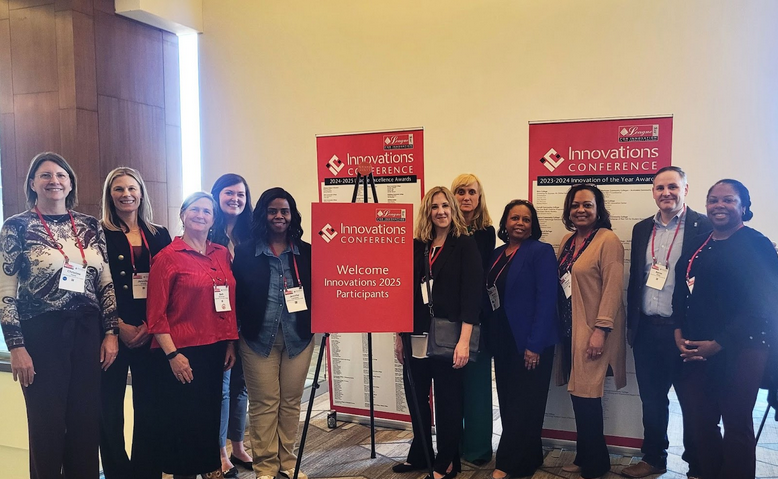Recap: Belk Center and The Hunt Institute Partner on Postsecondary Pathways Webinar Series
To better align current efforts to increase postsecondary attainment and highlight postsecondary pathways available at community colleges in North Carolina and beyond, the Belk Center for Community College Leadership and Research and The Hunt Institute recently partnered on a three-part, community college-focused webinar series.
Launched in August 2022, the series focused on three key efforts: postsecondary attainment, closing equity gaps in access to higher education, and North Carolina’s efforts to engage adult learners. Moderated by Belk Center and The Hunt Institute representatives and led by industry experts offering perspective and recommendations for the future of postsecondary education, each webinar invited participants for a 30-minute discussion followed by an interactive question and answer session.
The first webinar, titled “The Role of Community Colleges in Postsecondary Attainment,” discussed the variety of programs, credentials and degrees offered by community colleges, and how the institutions are uniquely positioned to support students in lifelong learning. Moderator Dr. Winn Decker, Deputy Director of Higher Education at The Hunt Institute, and panelists Dr. Charlene Dukes, president emerita at Prince Georges Community College; Dr. Avis Proctor, president of William Rainey Harper College; and Dr. Jeff Cox, president of Wilkes Community College, discussed the critical role community colleges play in the higher education landscape.
Key takeaways include:
- The accessibility of community colleges has allowed individuals to gain essential education credentials and the required skills to meet the needs of the workforce.
- Community college leaders can improve college-going culture by creating a sense of belonging and by ensuring a commitment to their students’ dreams and goals.
- It is key to recognize the role that language has when it comes to students’ access and understanding of higher education as professional jargon may not be easily understood to prospective students.
- Engaging community partners can have generational impacts for students and their families.
- If community colleges are fulfilling their missions, then students and their families will be able to fully realize the impact.
The second installment of the series, “Postsecondary Pathways: The Role of Community Colleges in Access to Higher Education,” welcomed MC Belk Pilon, president and Board Chair of the John M. Belk Endowment, as moderator, and Iris Palmer, deputy director of Community Colleges New America; Dr. William Serrata, president of El Paso Community College; and Dr. Pamela Senegal, president of Piedmont Community College for the panel discussion. The conversation focused on community colleges’ history as open-access institutions – allowing learners from diverse backgrounds to earn degrees and credentials. The panel also discussed how community colleges have long served as engines for economic mobility and intergenerational wealth, and shared their expertise and recommendations for best practices to ensure that all students have access to higher education.
Key Takeaways include:
- Learners ages 25-44 represent 1.3 million of the higher education population. 34% of undergraduates are the first in their family to attend college.
- Providing clear navigation for students from enrollment to completion is critical to the success of community college goers.
- Community colleges need to offer programs that lead to high-labor market outcomes.
- Embedding credentials into academic programs is one way to ascertain that students are graduating with the competencies needed for workforce success.
The third and final webinar in the series, “State Spotlight: North Carolina’s Efforts to Engage Adult Learners,” focused on the role of two-year institutions in re-engaging adult learners in North Carolina and beyond. Moderator Dr. Laura Leatherwood, president of Blue Ridge Community College, and expert panelists, Mike Krause, senior advisor of the John M. Belk Foundation; Shauna Davis, strategy director of the Lumina Foundation; and Senator Deanna Ballad, North Carolina General Assembly, discussed the importance of engaging adult populations in education to meet the state’s current workforce needs.
Key Takeaways include:
- Focusing on adult learners is not only important for institutions of higher education maintaining enrollment levels, but to ensure states meet their workforce needs and that individuals access family sustaining wages.
- NC Reconnect has resulted in an increase in reenrollment.
- In order to increase adult learner enrollment, the NC Reconnect promise has three main focuses:
- Outreach to former students
- Targeted marketing for adults
- Direct support, such as a one-stop-shop, specific to adult learners
- As state policymakers consider implementing similar programs, it’s critical to have timely and accurate data, both to understand the scope of the issue and to develop a policy that adequately supports institutions in addressing the issue.
As we look to the future, The Hunt Institute and Belk Center are excited to continue their partnership through a quarterly co-hosted webinar. The next webinar will take place in August 2023 and will discuss the role of community colleges in serving rural students. Continue to check out our website for future webinar dates, discussion topics and panelists.
About the Belk Center
Creating tools, convening leaders, and catalyzing change: the Belk Center for Community College Leadership and Research works with educators, researchers, and policymakers to further more equitable community college outcomes in North Carolina and across the nation. We equip community college leaders with actionable insights and create opportunities for collaboration as we tackle the most pressing issues facing students and campuses to build stronger, more resilient communities. The Belk Center is housed in the College of Education at North Carolina State University, a land-grant university that shares our commitment to community colleges and the critical role these institutions play in creating and expanding opportunities for all North Carolinians.
- Categories:


